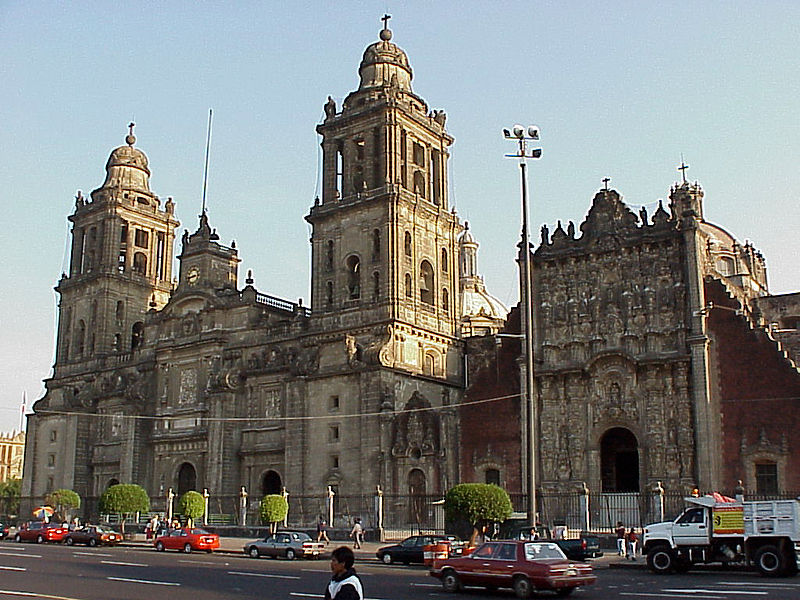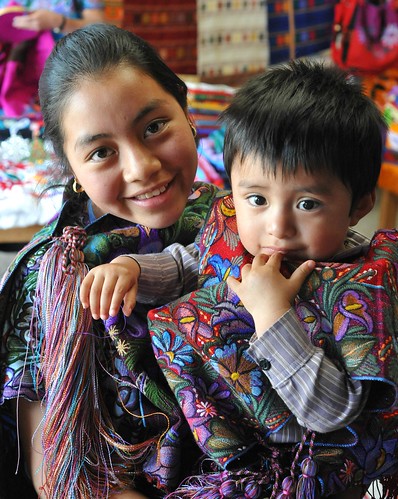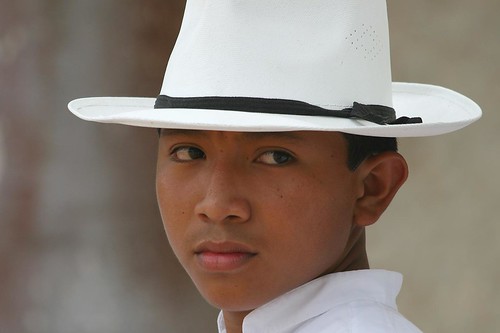Difference between revisions of "Adopting from Mexico"
(→Hague Convention Information) |
(→Who Can Adopt) |
||
| Line 99: | Line 99: | ||
=Who Can Adopt= | =Who Can Adopt= | ||
| + | [[Adoption]] between the United States and Mexico is governed by the Hague [[Adoption]] Convention. Therefore, to [[adopt]] from Mexico, you must first be found eligible to [[adopt]] by the U.S. Government. The U.S. Government agency responsible for making this determination is the Department of Homeland Security, U.S. Citizenship and Immigration Services (USCIS). Learn more. | ||
| + | |||
| + | In addition to these U.S. requirements for prospective [[Adoptive Parents|adoptive parents]], Mexico also has the following eligibility requirements for prospective [[Adoptive Parents|adoptive parents]]: | ||
==Residency== | ==Residency== | ||
| + | |||
| + | Mexican [[adoption]] procedures include a one to three week pre-[[adoption]] trial period, during which the child lives with the prospective [[Adoptive Parent|adoptive parent]](s) in Mexico. Because of the large amount of paperwork in both the Mexican and American processes, the DIF suggests that [[Adoptive Parents|adoptive parents]] be prepared to spend at least three months in Mexico including the pre-[[adoption]] trial period. | ||
==Age of Adopting Parents== | ==Age of Adopting Parents== | ||
| + | |||
| + | Prospective [[Adoptive Parents|adoptive parents]] must be over 25 years of age and at least 17 years older than the child. If married, only one parent must meet the age requirement. | ||
==Marriage== | ==Marriage== | ||
| + | |||
| + | Prospective [[Adoptive Parents|adoptive parents]] may be married or single, male or female. | ||
==Income== | ==Income== | ||
| + | |||
| + | Prospective [[Adoptive Parents|adoptive parents]] must demonstrate the means to support the physical and educational needs of the child. | ||
==Other== | ==Other== | ||
| + | While similar, each Mexican state does have its own civil code governing adoptions. Therefore, it is important to check with each state, as the laws among states will vary. | ||
=Who Can Be Adopted= | =Who Can Be Adopted= | ||
Revision as of 18:43, 2 April 2014
Contents
Mexico Adoption Alert
Notice: Updated information on U.S.-based Hague Accredited Adoption Service Providers authorized by Mexican Central Authority (September 17, 2013).
The Mexican Central Authority recently provided the U.S. Central Authority with official notification that, in August 2013, it granted authorization to provide adoption services in Mexico to six additional U.S. based Convention accredited adoption service providers. This action brings the total number of U.S. adoption service providers authorized in Mexico to twelve:
- Carolina Adoption Services, Inc
- International Child Foundation
- Across the World Adoptions
- All God’s Children International
- Adoption Related Services, Inc.
- MLJ Adoptions, Inc.
- International Adoption Net (August 2013)
- The Open Door Adoption Agency (August 2013)
- The Catholic Charities of the Archdiocese of Chicago (August 2013)
- Hands Across the Water (August 2013)
- Children’s House International Adoptions (August 2013)
- CASI Foundation for Children (August 2013)
It is essential that U.S. citizens wishing to adopt in Mexico work with an adoption service provider that has current U.S. Hague accreditation or approval and is currently authorized by the Mexican Central Authority. Because Mexico periodically updates its list of authorized providers, we encourage prospective adoptive parents to verify their adoption service provider’s authorization status with the Mexican Central Authority before initiating an adoption. The Mexican Central Authority publishes a list of adoption service providers authorized to provide adoption services in Mexico. In addition, our Mexico adoption information flyer includes contact information for the Mexican Central Authority along with information on the Mexican intercountry adoption process.
We publish updated information related to intercountry adoptions from Mexico as we receive it. If you have any further questions please write to us at adoptionUSCA@state.gov or call us at 1-888-407-4747.
Notice: Updated information from the Mexican Central Authority regarding adoptions completed without first fulfilling all intercountry adoption processing steps. (August 26, 2013)
The Mexican Central Authority (MCA) recently informed the Office of Children's Issues that it is unable to issue the required Convention Article 23 certification for any out-of-order adoptions, and that prospective adoptive parents will need to redo such adoptions in accordance with Mexican law. The "How to Adopt" section of our Mexico adoption flyer, which will be updated soon, summarizes the process for adopting a child from Mexico.
The MCA emphasized that ALL Convention adoption cases from Mexico must meet the following requirements:
- 1. All prospective adoptive parents must work with a U.S. accredited or approved adoption service provider (ASP) that is also authorized in Mexico. For up to date information on U.S. agencies authorized to provide adoption services in Mexico, prospective adoptive parents may refer to the website of the national Desarollo Integral de la Familia (DIF).
- 2. Before commencing adoption processing at the state level (and prior to matching), the authorized ASP acting on behalf of the prospective adoptive parents must first file the adoption application (also known as dossier) with the Secretaria de Relaciones Exteriores (SRE). The SRE forwards the adoption application to the national and state offices of the DIF. The application must include an approved I-800A.
The MCA advised that that if a family already completed an adoption without following all Convention steps in order, then the family may go to a Mexican federal court and petition the court for an amparo ordering the lower/state court that issued the adoption decree to open, or vacate, the adoption.. Once the family has been granted a federal amparo ordering the lower/state court to vacate the previous adoption, the family would redo the entire adoption in compliance with Mexico's Convention intercountry adoption process.
Mexico's stated policy means that an I-800 petition based on an adoption completed out of order in Mexico must be denied pursuant to 8 CFR 204.309(b)(1). For some out-of-order Convention adoptions, the cited regulation allows for provisional approval of an I-800 if the petitioner can demonstrate that the adoption cannot be voided, vacated or annulled. With this announcement, provisional approval for out of order Mexican intercountry adoptions is unavailable because the MCA indicated that adoptions can be vacated, voided, or annulled in Mexico through a federal amparo process. Furthermore, the MCA has stated that it will not issue the required Convention Article 23 certification for cases that do not follow the Mexico's Convention process. Without the MCA's certification, the U.S. Embassy cannot issue a Convention immigrant visa.
We will publish additional updated information related to intercountry adoption in Mexico as we receive it. If you have any further questions please write to us at adoptionUSCA@state.gov or call us at 1-888-407-4747.
Hague Convention Information
WARNING: Mexico is party to the Hague Adoption Convention. Do not adopt or obtain legal custody of a child in Mexico before a U.S. consular officer issues an “Article 5 Letter.” See the “How to Adopt” section for more information.
Mexico is party to the Hague Convention on Protection of Children and Co-operation in Respect of Intercountry Adoption (Hague Adoption Convention). Therefore, all adoptions between Mexico and the United States must meet the requirements of The Hague Adoption Convention and U.S. law and regulations implementing the Convention.
The Mexican Central Authority is comprised of multiple entities including two federal authorities as well as an adoption authority in each of the 31 states. The two federal authorities are the Secretary of Exterior Relations, or Secretaria de Relaciones Exteriores (SRE), which issues key Hague Adoption Convention documentation including the Article 23 Certificate, and the National System for the Full Development of the Family, or Sistema Nacional para el Desarollo Integral de la Familia (DIF), which coordinates national policy for child and family welfare, including processing of domestic and intercountry adoption cases. Both of these entities are federal and are based in Mexico City.
In addition to the two federal authorities named above, adoptions also involve one of the 31 state DIF offices, one in each Mexican state. The state DIF offices issue the Article 16 and Article 17 letters, important Hague Adoption Convention documentation. The civil code in each state may vary, so prospective adoptive parents need to be aware of and abide by the applicable laws of the state from which they plan to adopt. Though state and regional DIF offices play an important role in intercountry adoption cases, all intercountry adoptions must be processed in coordination with the federal DIF office and the SRE, which are the entities with the authority to certify Hague Convention compliance for intercountry adoptions.
Propective adoptive parents must submit their adoption application to the SRE through a U.S. based adoption service provider (ASP) that is both Hague Accredited in the U.S. AND approved to provide services in Mexico by the Mexican Central Authority. Mexico recently implemented a national authorization process for adoption service providers. Mexican state DIF offices may choose to accept national authorization of an ASP or may choose to implement their own authorization process for ASPs. However, working with an adoption service provider that has received only state authorization (and not national authorization) may cause the case to go through an end of process verification at the federal level. This could delay the adoption and possibly result in the Mexican Central Adoption's refusal to issue Hague certifications that are required for visa issuance. Prospective adoptive parents should take care to ensure that the ASP they choose to work with is both on the U.S. list of Hague accredited ASPs, as well as being authorized to provide services by both state and federal adoption authorities in Mexico.
Prospective adoptive parents who are dual Mexican and U.S. nationals are cautioned that only plenary or plena adoptions are considered valid for intercountry adoption. The Mexican legal framework provides for two adoption processes: simple (simple) adoption and plenary (plena) adoption. Under Mexican law, Mexican nationals and permanent residents of Mexico may complete a simple adoption, which involves a faster and simpler legal process than the longer and sometimes more difficult plena process. However, simple adoptions do not meet the requirements of the Hague Adoption Convention. It is only possible to issue a U.S. Hague adoption visa to children adopted via a plena adoption. The plena adoption decree must mention that the dual national parents reside in the United States, and must clearly indicate that the adoption is an intercountry adoption.
Who Can Adopt
Adoption between the United States and Mexico is governed by the Hague Adoption Convention. Therefore, to adopt from Mexico, you must first be found eligible to adopt by the U.S. Government. The U.S. Government agency responsible for making this determination is the Department of Homeland Security, U.S. Citizenship and Immigration Services (USCIS). Learn more.
In addition to these U.S. requirements for prospective adoptive parents, Mexico also has the following eligibility requirements for prospective adoptive parents:
Residency
Mexican adoption procedures include a one to three week pre-adoption trial period, during which the child lives with the prospective adoptive parent(s) in Mexico. Because of the large amount of paperwork in both the Mexican and American processes, the DIF suggests that adoptive parents be prepared to spend at least three months in Mexico including the pre-adoption trial period.
Age of Adopting Parents
Prospective adoptive parents must be over 25 years of age and at least 17 years older than the child. If married, only one parent must meet the age requirement.
Marriage
Prospective adoptive parents may be married or single, male or female.
Income
Prospective adoptive parents must demonstrate the means to support the physical and educational needs of the child.
Other
While similar, each Mexican state does have its own civil code governing adoptions. Therefore, it is important to check with each state, as the laws among states will vary.
Who Can Be Adopted
How to Adopt
Adoption Authority
The Process
Traveling Abroad
After Adoption
SOURCE
Intercountry Adoption, Bureau of Consular Affairs. U.S. Department of State Country Information











